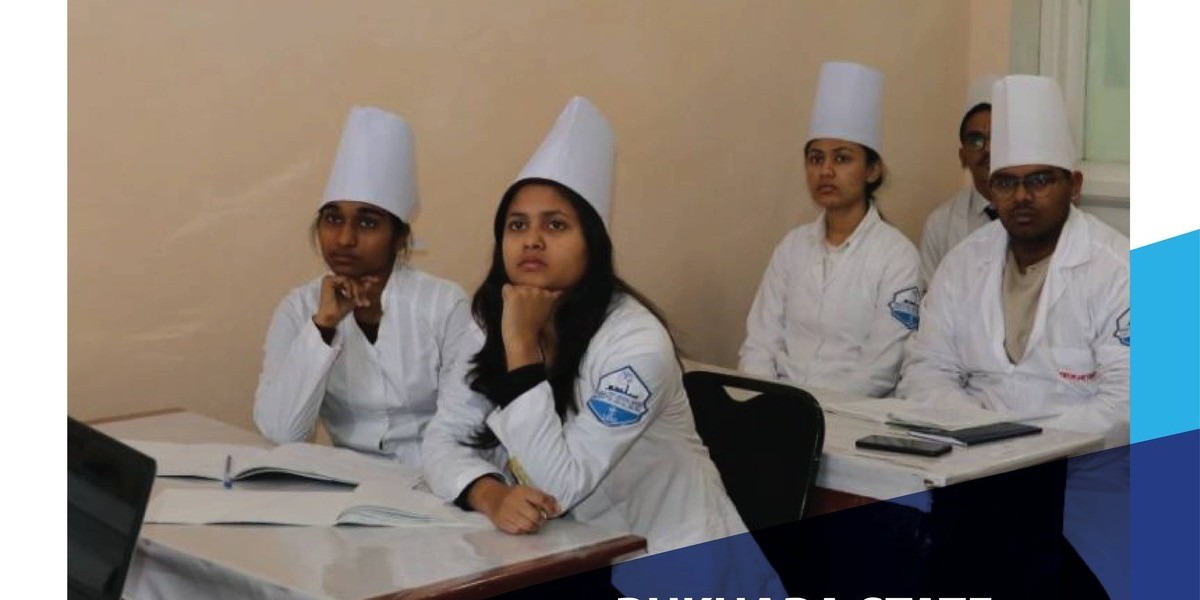Bukhara State Medical Institute (BSMI) has established a reputation for its commitment to providing comprehensive medical education that goes beyond theoretical knowledge. One of the cornerstones of BSMI's educational philosophy is the emphasis on clinical experience, which is essential for preparing competent and compassionate healthcare professionals. This article explores the various ways in which Bukhara State Medical Institute supports students in gaining clinical experience during their studies, ensuring they are well-equipped to meet the challenges of the medical field.
Importance of Clinical Experience
Clinical experience is crucial for medical students as it allows them to apply theoretical knowledge in real-world settings, develop practical skills, and interact with patients. Engaging in clinical practice not only enhances students' understanding of medical concepts but also fosters critical thinking, communication skills, and empathy—qualities that are indispensable in the healthcare profession. BSMI recognizes the significance of clinical training and has implemented various strategies to provide students with robust hands-on experience throughout their education.
Structured Clinical Training Programs
- Integrated Curriculum
Bukhara State Medical Institute employs an integrated curriculum that combines classroom learning with clinical practice from the early stages of the medical program. This approach ensures that students are exposed to clinical settings while simultaneously learning foundational medical concepts. By integrating clinical training with academic courses, students can see the practical application of their studies in real-time.
- Clinical Rotations
One of the key components of clinical training at BSMI is the structured clinical rotations program. Students undertake rotations in various medical specialties, including internal medicine, surgery, pediatrics, obstetrics, and psychiatry. These rotations typically occur in the later years of the medical program and provide students with comprehensive exposure to different areas of healthcare.
Hands-On Experience:
During these rotations, students work under the supervision of experienced medical professionals, allowing them to participate in patient assessments, diagnostic procedures, and treatment plans. This hands-on experience is invaluable in building students' confidence and competence in clinical skills.Diverse Clinical Settings:
BSMI partners with a network of hospitals and healthcare facilities, ensuring that students have access to diverse clinical environments. This exposure enables them to understand various healthcare systems and practice settings, preparing them for future challenges in their careers.
Simulation-Based Training
- State-of-the-Art Simulation Labs
BSMI is equipped with modern simulation labs that provide a safe and controlled environment for students to practice clinical skills. These labs are designed to simulate real-life medical scenarios, allowing students to develop and refine their skills without the pressure of working with actual patients.
Simulated Patient Interactions:
Students engage in role-playing exercises with trained actors who simulate patient scenarios. This experience helps students develop essential communication and interpersonal skills while enhancing their clinical judgment and decision-making abilities.Technical Skills Practice:
The simulation labs also offer opportunities for students to practice technical skills, such as suturing, intubation, and IV placement. This practice is critical for ensuring students are proficient in essential procedures before they engage in real clinical situations.
Mentorship and Supervision
- Supervised Clinical Practice
Throughout their clinical rotations, students are paired with experienced mentors who provide guidance and supervision. These mentors play a crucial role in facilitating students' learning experiences by offering feedback, sharing insights, and helping students navigate the complexities of patient care.
- Individualized Learning:
The mentorship model allows for individualized learning, where students can ask questions, seek advice, and receive personalized feedback on their performance. This supportive environment fosters a culture of learning and continuous improvement.
- Interprofessional Collaboration
BSMI emphasizes the importance of interprofessional collaboration in healthcare. Students often work alongside nursing students, pharmacy students, and other healthcare professionals during their clinical training. This collaborative approach not only enhances their understanding of team dynamics but also prepares them for working in multidisciplinary healthcare settings.
Community Engagement and Outreach
- Community Health Initiatives
Bukhara State Medical Institute actively engages students in community health initiatives, providing them with opportunities to serve underserved populations. These initiatives may include health fairs, vaccination drives, and educational workshops on preventive health.
- Real-World Impact:
Participating in community health programs allows students to apply their clinical skills while making a tangible impact on public health. This experience fosters a sense of responsibility and commitment to improving health outcomes in their communities.
- Rural Health Exposure
As part of their training, students may also have opportunities to work in rural healthcare settings. These experiences are invaluable in exposing students to the unique challenges faced by healthcare providers in underserved areas and help them develop a broader understanding of healthcare disparities.
Research Opportunities
- Clinical Research Participation
BSMI encourages students to participate in clinical research projects, providing them with opportunities to engage in evidence-based practice. By collaborating with faculty members on research studies, students gain insights into the research process and its application to clinical practice.
- Enhancing Critical Thinking:
Involvement in research projects enhances students’ critical thinking skills and promotes a deeper understanding of medical literature, allowing them to make informed decisions in their future practice.
Conclusion
Bukhara State Medical Institute is dedicated to providing a comprehensive education that emphasizes clinical experience as a vital component of medical training. Through structured clinical rotations, simulation-based training, mentorship, community engagement, and research opportunities, BSMI equips students with the practical skills and knowledge necessary for successful careers in healthcare. As students navigate their clinical training, they develop the confidence, competence, and compassion essential for providing quality patient care. With a focus on experiential learning, BSMI continues to play a pivotal role in shaping the future of healthcare professionals, ensuring they are prepared to meet the challenges of an ever-evolving medical landscape.
Naijamatta is a social networking site,
download Naijamatta from Google play store or visit www.naijamatta.com to register. You can post, comment, do voice and video call, join and open group, go live etc. Join Naijamatta family, the Green app.
Click To Download


